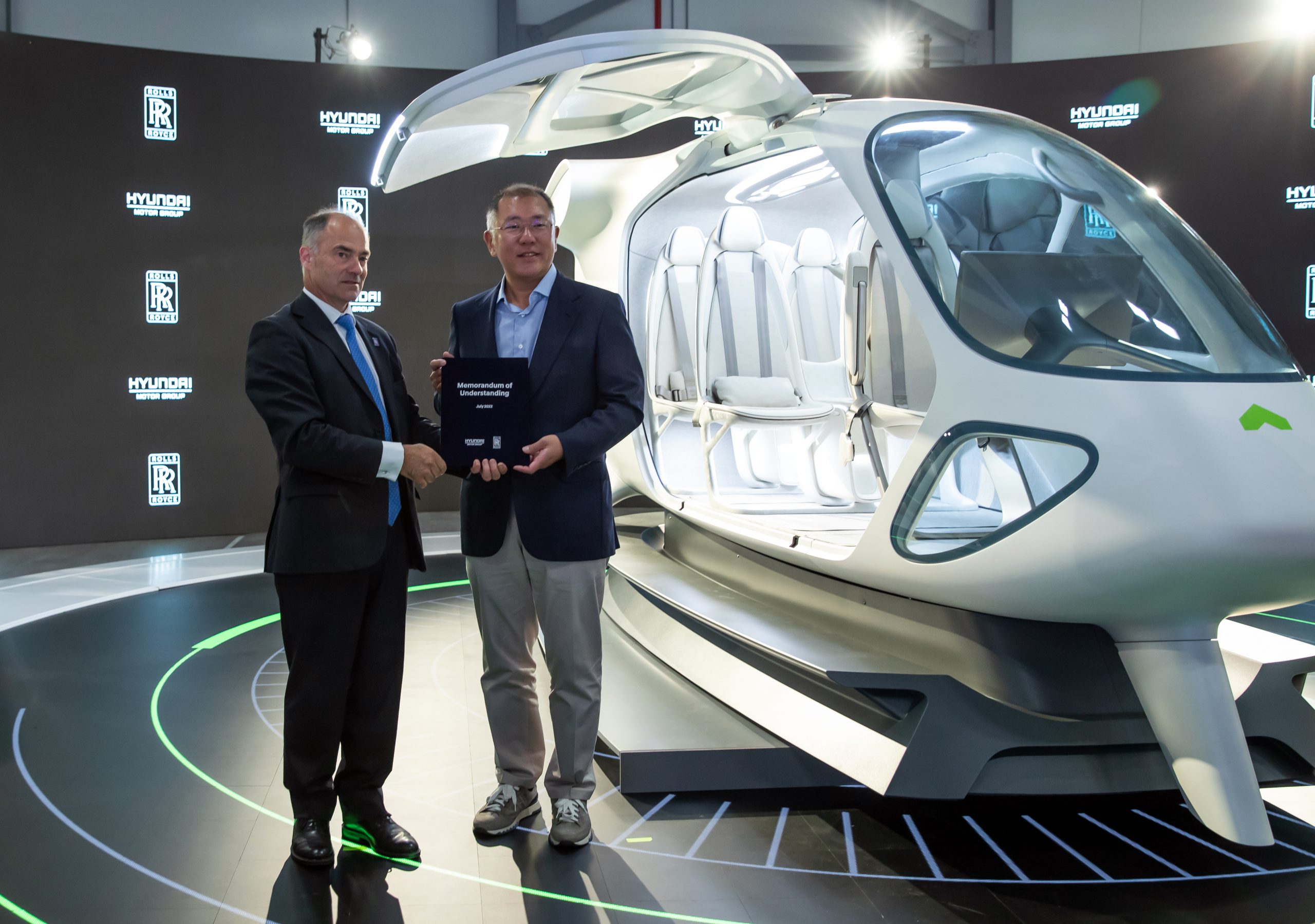Rolls-Royce and Hyundai collaborate on all-electric propulsion and hydrogen fuel cell technology
Rolls-Royce and Hyundai are to collaborate on bringing all-electric propulsion and hydrogen fuel cell technology to the advanced air mobility (AAM) market, leveraging Rolls-Royce’s aviation and certification capabilities and Hyundai’s hydrogen fuel cell technologies.
Both companies share a vision of delivering battery-electric and fuel cell electric solutions to the urban air mobility (UAM) and regional air mobility (RAM) markets, having signed a memorandum of understanding with five strategic aims:
1. Collaborating on the technology development and requirements of power and propulsion systems
2. Collaborating on the industrialisation of Rolls-Royce power and propulsion systems
3. Developing electric propulsion systems based on hydrogen fuel cells as an energy source
4. Collaborating to bring to market a joint fuel-cell electric propulsion system to the wider AAM market
5. Delivering a joint fuel-cell electric aircraft demonstration by 2025
The signing ceremony took place at Hyundai Supernal’s booth at the Farnborough Airshow 2022. Hyundai Advanced Air Mobility Division president Jaiwon Shin said: “We are pleased to draw on Rolls-Royce’s aviation and certification expertise to accelerate the development of hydrogen fuel-cell propulsion systems.
“Hyundai has successfully delivered hydrogen fuel cell systems to the global automotive market and is now exploring the feasibility of aerospace integration to support the global aviation industry’s goal to fly net zero carbon by 2050.”
Rolls-Royce Electrical president Rob Watson said: “Hyundai provides a valuable opportunity to leverage the capabilities each company brings from the aerospace and automotive sectors.
“The AAM Market offers great commercial potential, and this is also another demonstration of Rolls-Royce’s role in delivering the solutions that will enable passengers to travel sustainably and help deliver net zero carbon by 2050.”
The benefits of using a hydrogen fuel cell system is a zero-emission, silent and reliable on-board power source that enables scalability and a long distance flight range.
Hyundai will work with Rolls-Royce to bring hydrogen fuel cells, storage systems and infrastructure to the aerospace markets, and advance this technology into Hyundai’s RAM Vehicles and Rolls-Royce all-electric and hybrid-electric propulsion system offerings.
Last year, Rolls-Royce announced a pathway to net zero carbon emissions to help decarbonise the global economy. Hyundai’s US-based Supernal unit is aiming to begin commercial UAM services in 2028 while Hyundai Motor Group plans to launch RAM services in the 2030s.
Last September, Urban-Air Port announced plans with the UAM Division of Hyundai to develop 65 electric urban-air ports worldwide for autonomous airborne drones and eVTOL aircraft.


